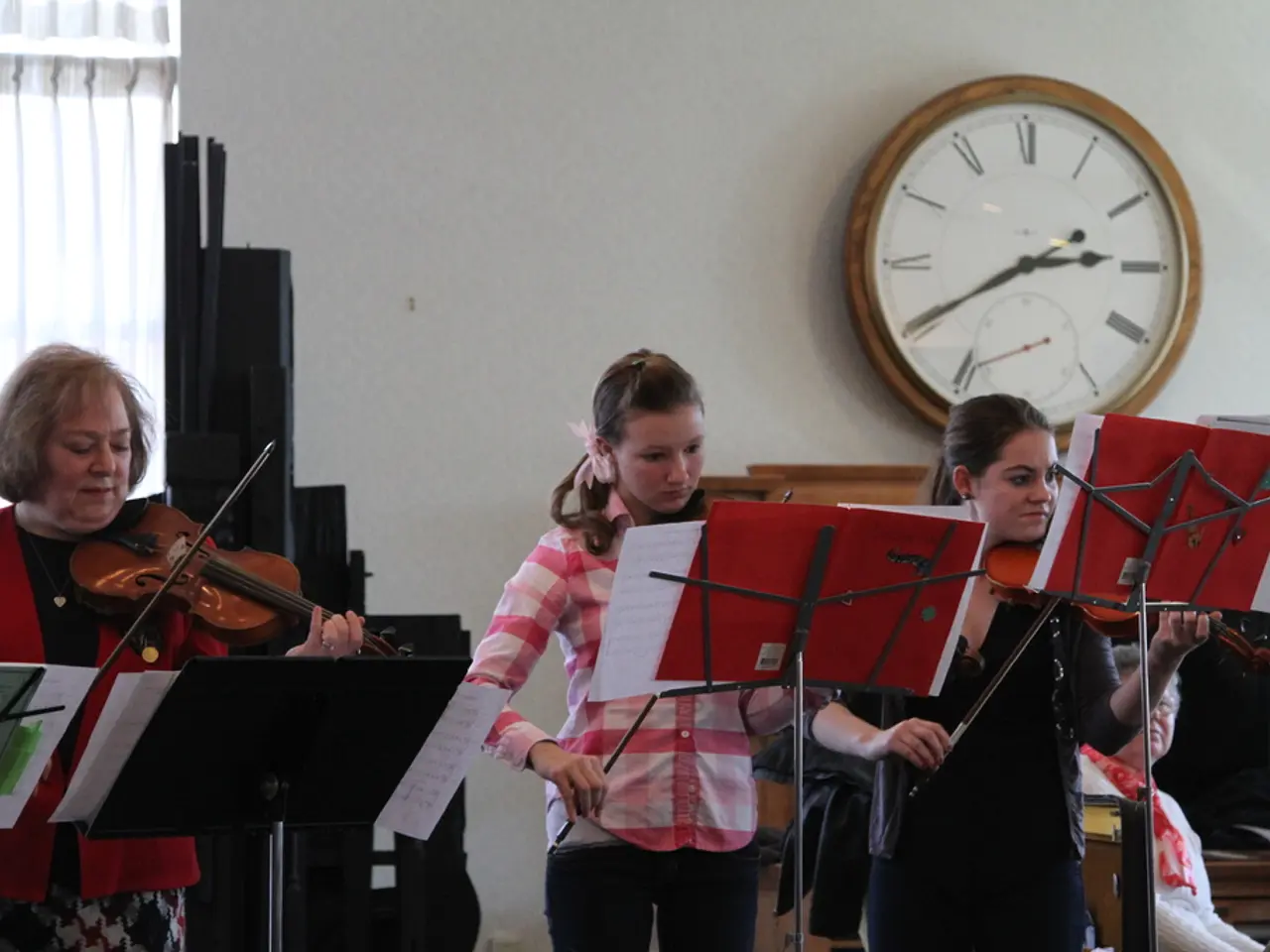A Pioneering Voice in American Jewish Music: Freydele Oysher and the Oral History Project
American Jewish Music Oral History Project Highlights: Freydele Oysher, the Khazene Vocal Pioneer
In 1995, noted Jewish music scholars and record producers Neil W. Levin and Barry Serota conducted an interview with Freydele Oysher (1913-2004), a star of the Yiddish stage, and her husband, singer and composer Harold Sternberg. This interview, part of the Oral History Project, sheds light on the career and contributions of a remarkable figure in American Jewish music.
Freydele Oysher was a notable American Jewish singer and actress, known for her contributions to Jewish music and culture, particularly in the mid-20th century. While she was widely recognized for her cantorial and theatrical performances, her specific contributions to the genre of khazones—traditional Jewish cantorial chants—reflect a significant link between classical Jewish liturgical music and the burgeoning American Jewish cultural scene.
Background and Career
Freydele Oysher was part of a family deeply embedded in Jewish musical traditions. Her brother, Moishe Oysher, was a celebrated cantor and actor. Freydele herself became well-known for her powerful, emotive voice and her ability to blend traditional Jewish liturgical music with contemporary American performance styles. She performed in Yiddish theater, films, and concerts, helping to popularize Jewish music among American audiences.
Contribution to Khazones and Jewish Music
Oysher played a vital role in preserving khazones, the intricate and sacred cantorial melodies traditionally sung in synagogues, at a time when many American Jews were becoming more assimilated and less connected to traditional practices. She helped bridge the gap between the religious and secular worlds by bringing cantorial music from the synagogue setting to concert halls and theaters, making it accessible and appealing to a wider audience.
As a female performer interpreting a genre historically dominated by male cantors, Freydele’s work challenged traditional gender roles in Jewish liturgical music, opening the door for women in Jewish religious and musical life. Her performances often blended the classical modes of khazones with theatrical and folk elements, thereby contributing to the evolution of American Jewish music and influencing subsequent generations of Jewish performers.
The Oral History Project
The Oral History Project, a landmark step towards facilitating research that takes into account oral histories with the same degree of fine comb analysis as other forms of documentation, offers a unique opportunity to delve into the lives and careers of influential figures in American Jewish music. The project features video interviews with important figures such as Milton Babbitt, Josef Cykowsky, and Mina Bern.
The videos in the Oral History Project are charming and entertaining, and their use of first-person narratives invigorates the experience of history. The transcripts in the Oral History Project are search-enabled, allowing researchers to pinpoint moments relevant to their research questions. The project also includes a transcription tool that is aligned with the video, providing texts of the interviews.
Freydele Oysher's Legacy
Freydele Oysher’s career helped sustain and revitalize Jewish musical traditions within the American diaspora. By performing khazones outside the strictly religious context, she contributed to the cultural preservation and renewal of Jewish identity through music at a critical time. Her legacy highlights the importance of performance arts in maintaining cultural continuity and adapting tradition for future audiences.
One of Freydele's most notable performances was her rendition of "Reboynu Shel Oylem," a piece composed by Harold Sternberg, which garnered an eight-minute-long ovation. Freydele used the story of her brother to express her own feelings about the contribution she made to the spiritual life of the Jews with her khazones.
The recording of Freydele singing "Reboynu Shel Oylem" is from a 2005 reissue album, The Oysher Heritage. The Lowell Milken Center for Music of American Jewish Experience, which houses the Oral History Project, is expected to have a significant impact on research on Jewish music and American Jewish life. Freydele Oysher’s pioneering work in American Jewish music continues to resonate, inspiring future generations to explore and preserve this rich cultural heritage.
- Embracing various aspects of life, Freydele Oysher's interests extended beyond her illustrious music career, as she was also an ardent advocate for education and self-development, often participating in lectures and workshops to share her insights about Jewish culture and music.
- Besides nurturing her passion for music, Freydele Oysher sought entertainment through diverse sources, including attending theater performances, movies, and engaging in intellectual discussions, which added layers of depth and richness to her creative output.




